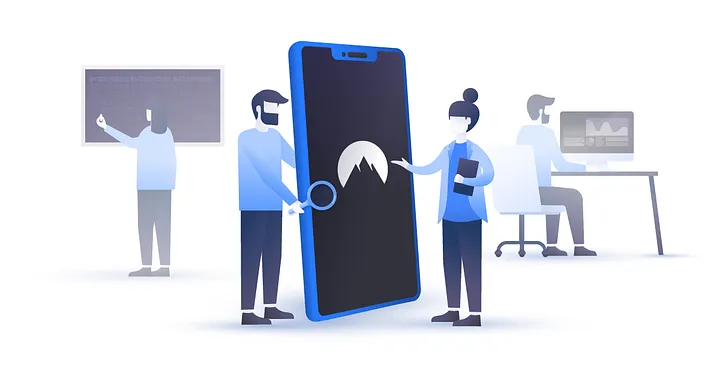In the digital age, privacy has become a hot commodity. I often find myself pondering the intricacies of online anonymity. One of my primary tools for preserving my privacy is a Virtual Private Network (VPN). Here’s a detailed look at how I use VPNs to enhance my online anonymity and the best practices I follow to make sure I stay protected.

Understanding VPNs
A VPN creates a secure tunnel between my device and the internet. This ensures that all the data transferred is encrypted, rendering it unreadable to outsiders. When I connect to a VPN, my IP address is masked, and I appear to be operating from a different location. This has major implications on my ability to browse without the fear of being tracked.
The Importance of Anonymity
Staying anonymous online is crucial for several reasons. Numerous entities track and store my online activities for advertising and profiling. Cybercriminals may also exploit exposed information. By using a VPN, I add an essential layer of protection against these threats. I can browse, stream, and download with far less concern about prying eyes.
✅ Current deal: 🔥 Get NordVPN with up to 75% OFF! 🔥
How I Use a VPN to Browse Anonymously
Choosing the Right VPN
The first step I take is choosing a reputable VPN. Not all VPNs offer the same level of security and privacy. I look for features such as:
- No-Log Policy: This ensures that the provider does not keep any records of my browsing activity.
- Robust Encryption: Look for protocols like OpenVPN or WireGuard, which provide strong encryption.
- High Speed: I can’t compromise speed for security, so I always check independent reviews before settling on a provider.
- Reliable Customer Support: In case I run into issues, I need to ensure customer support is responsive and helpful.
Setting Up the VPN
Once I select the right VPN, setting it up is usually straightforward. I download the application, install it on my devices, and then configure my preferences. It’s critical to enable features like a kill switch, which disconnects my internet if the VPN connection drops. This prevents any data from being transmitted without encryption.
Selecting a Server Location
When I start browsing, I select a server location that aligns with my needs. If I’m trying to access geo-restricted content, I may choose a server in a country where that content is available. For general anonymity, I tend to select servers that are less populated, as this reduces the chances of my data being compromised.
Always Connected
I make it a practice to keep my VPN connected whenever I go online. Whether I’m using public Wi-Fi at a coffee shop or my home network, keeping the VPN active ensures that I have a consistent layer of protection against potential threats.
Understanding DNS Leaks
DNS leaks can undermine the effectiveness of my VPN. I run DNS leak tests regularly to ensure my original IP address isn’t being revealed. Most reputable VPN providers have built-in leak protection, but it’s always wise to double-check. If I discover a leak, I promptly report it to my provider and switch servers.
✅ Current deal: 🔥 Get NordVPN with up to 75% OFF! 🔥
Tips for Staying Anonymous While Browsing
In addition to using a VPN, I adhere to several practices that further enhance my anonymity online. Here are some tips I recommend:
-
Use a Privacy-Focused Browser: I prefer browsers that prioritize user privacy, such as Mozilla Firefox or Brave. These browsers have options to block trackers and ads, minimizing my digital footprint.
-
Disable WebRTC: WebRTC can expose my real IP even while using a VPN. I disable this feature in my browser settings to avoid unintentional leaks.
-
Enable Strong Browser Privacy Settings: I take time to adjust my browser’s privacy settings. I block third-party cookies, ensure “Do Not Track” requests are enabled, and regularly clear my browsing data.
-
Limit Personal Information Sharing: I never share personal information on forums or social networks. Instead, I use pseudonyms whenever possible.
-
Consider Additional Privacy Tools: For even more anonymity, I use Tor in conjunction with my VPN for added security. This multi-layered approach can significantly enhance my privacy.
-
Be Wary of Free VPNs: I avoid free VPN services, as they often come with compromises, such as data logging and ads. A reliable, paid VPN is worth the investment for my own security.
Regularly Reviewing My Practices
Cybersecurity is a constantly evolving field. I regularly review my practices to ensure I am up-to-date with the latest trends in online privacy. Staying informed about new threats and how to counter them has become a routine for me. This proactive approach guards me against potential vulnerabilities and helps maintain my anonymity.
Conclusion
Utilizing a VPN is an essential step towards achieving online anonymity, but it is not the only measure I take to protect myself while browsing. Incorporating other privacy practices has considerably boosted my confidence in exploring the internet without fear. While I enjoy the benefits of being online, I prioritize my security and anonymity by taking these necessary precautions. With the right tools and knowledge, anyone can enhance their online privacy and browse confidently.
Affiliate Disclosure: By clicking on our links, we may earn commissions at no additional cost to you.